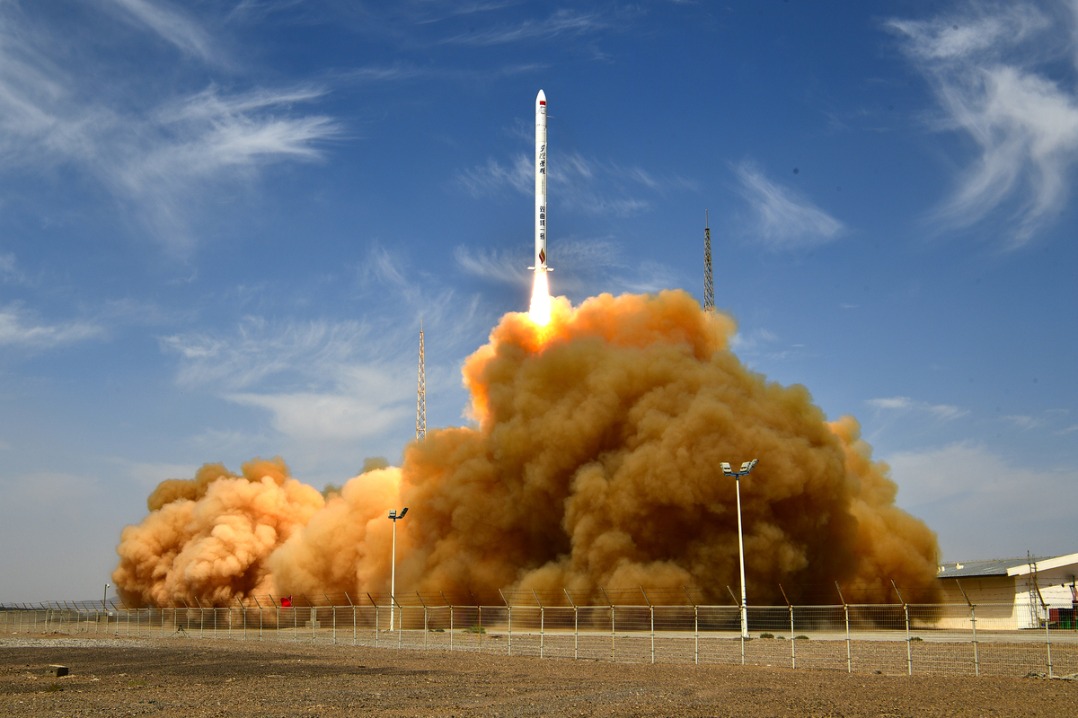Enter the master strategist

China Reform and Opening – Forty Years in Perspective
Enter the master strategist
Editor's note: Laurence Brahm, first came to China as a fresh university exchange student from the US in 1981 and he has spent much of the past three and a half decades living and working in the country. He has been a lawyer, a writer, and now he is Founding Director of Himalayan Consensus and a Senior International Fellow at the Center for China and Globalization.
He has captured his own story and the nation's journey in China Reform and Opening – Forty Years in Perspective. China Daily is running a series of articles every Thursday starting from May 24 that reveal the changes that have taken place in the country in the past four decades. Keep track of the story by following us.

After more than 15 years of China-US negotiations over WTO, the agreement had turned into an enormous text. In the end, however, it just came down to a couple of questions that remained outstanding. Issues such as chemical fertilizers came up, so did financial market access. That was a big issue and a great point for the American negotiating team that wanted to assure US control over global capital markets.
At one stage during the negotiations, on November 12, 1999, Charlene Barshefsky and her team had stormed out of Ministry of Foreign Trade and Economic Cooperation (MOFTEC)'s offices, returned to their hotel and packed their bags to leave the next morning. They were frustrated and wanted to go.
At four o'clock in the morning of their unscheduled departure, William McCahill, second in command at the US embassy, received a phone call telling the delegation to be at MOFTEC by seven o'clock. McCahill rallied the USTR team, who arrived at the MOFTEC office, bleary eyed and waiting for some last-minute good news.
There was none. After an hour of being stalled by Minister Shi Guangsheng, the group was summoned by State Counselor Madame Wu Yi to a meeting with the premier. For the next three hours, Premier Zhu Rongji took control over the negotiations, accompanied by Qian Qichen, the vice-premier responsible for foreign affairs, Wu Yi, Shi Guangsheng and Long Yongtu, chief negotiator for WTO.
Zhu settled everything with a general agreement on drafting a commitment to resolve any differences between the sides sometime in the future. The Americans were not used to this style, but the text was finished with a promise that both sides would fill out the details later. Over lunch, a cover page was drafted and this would be formerly signed in the afternoon.
The "China-US Bi-lateral Agreement Concerning Issues Relating to China's Entry into WTO" was signed by USTR Charlene Barshevski and MOFTEC minister Shi Guangsheng, and covered a range of "mutual interests" in areas such as customs duties and quotas on a range of products, and the opening up of the Chinese financial- services and telecommunications markets to US companies.
Following the announcement, the news was hailed as a "win-win negotiation" and "a great event in China's history", in an agreement that would assure China's imminent entry into the WTO. Despite the many changes that WTO entry would undoubtedly bring, these would be phased in gradually to reduce their impact. While this served to assuage immediate fears, it also gave warning to those in the state sector of tougher times ahead.
Long Yongtu explained to the press: "We have continued to open over 20 years. The sooner we open, the faster we will develop. There are many local enterprises that have grown up through joint ventures… The result of this negotiation is that China has decided to insist on reform and opening with integration into the world economic trends. China will now follow international rules in doing things which is not a concession either. Because following international rules is a responsibility of every responsible nation. In doing things according to the rules, we can perfect the investment environment and increase foreign investors' confidence. Competition will become even more transparent."
Long encouraged people "not to worry too much... Opening up is nothing to be afraid of. What we must insist upon, however, are the principals in opening. Opening must be managed and have conditions. We must also see mutual opening. Other nations must open as well if we are to do so." In 2018, merely two decades years later, as a trade war looms sparked by the short-term approach of the political ministration of Donald Trump, Long Yongtu’s words are more relevant than ever.
Please click here to read previous articles.
































